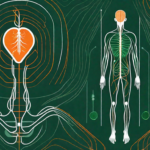Immune System Health
Your best defence against illness is not modern medicine, doctors or hospital treatment, it’s your own body’s immune system; take care of it and you will give yourself the best chance of remaining fit, healthy and illness free.
But how do you take care of your immune system? Well, it’s difficult to point at one thing that will fix it, and that’s partly because the immune system is not like the heart or other single organs of the body but more like a whole body (systemic) response.
The response involves the nerves in sensing invaders and the bone marrow in the production of antibodies to attack the infection. It involves the heart and blood supply to carry new cells to the site of the infection and to manage inflammation in the region.
Increasingly, scientists are realising that brain health also plays a key role because it is the brain that orchestrates and triggers much of the body’s immune response.
Though there are many aspects involved, we know that some key health factors influence greatly the strength and health of our immune system so there are a number of things we can do to make things better
Here are 5 things you can do to make things better.
1. Get enough sleep
In our modern world, this is a big one. Sleep is crucial, yet many of us compromise on it. Getting too little has multiple health effects and weakening your immune system is one of them. Studies show that the flu vaccine is less effective on people who are sleep deprived; and it’s during sleep that the body manufactures and releases key immune cells such as cytokines, which controls the immune inflammatory responses to diseases. Without them, your body can’t mount an effective defence. Experts recommend that all adults should get 7-8 hours of sleep a night.
2. Follow a healthy diet
It’s not just that a healthy diet gives your body all the building blocks it needs to make immune cells and defensive proteins. Eating healthily also promotes the growth of diverse gut bacteria which are being increasingly linked to a healthy and balanced immune system.
Recent studies on laboratory mice have shown that those without any gut flora have highly weakened immune systems. The exact mechanisms of influence are not fully understood, but the guts could act as educators for the immune system so that it does not over react to pathogens and cause too strong an inflammatory response.
The immune systems of newborns are also thought to mature in response to exposure to the gut flora they pick up from their mothers during childbirth.
A diverse gut microbiome encourages the immune system to maintain a healthy balance of antibodies. And the best way to promote a diverse microbiome is to eat a broad diet of natural foods, high in fibre and a range of fruit and vegetables..
3. Take supplements
This one is sometimes controversial. Many people argue that vitamin supplements are either unnecessary or ineffective. The truth is that vitamins taken as a pill are absorbed less efficiently than those that naturally occur in healthy foods. But this has to be weighed up against the fact that some micronutrients don’t occur often enough in much of our modern diet. So to ensure that we all get enough, vitamin supplements may help, even if most of what you swallow can’t be used by the body.
What’s more, depending on your personal biology, you may have specific deficiencies. For example, some people have naturally low levels of iron and women can see a drop in iron levels as they get older. Also, people with darker skin living in northern climates with less sunshine can have particularly low levels of vitamin D. Such deficiencies can have a strong negative impact on immune system performance.
Lifestyle or work can also have an impact. For example, if you travel a lot, it may not always be possible for you to follow a regular healthy diet.
It therefore makes sense to supplement even a healthy diet with extra vitamins.
It is also possible to have your blood tested to determine if you have specific deficiencies and then target your supplement intake accordingly.
4. Exercise Regularly
There is no doubt that regular exercise is good for your general health. It has a directly beneficial effect on cardiovascular health, lowers blood pressure, improves mood and helps control body weight. The benefits to the immune system health are more indirect. Increased health of the circulatory system, increased lung capacity and overall bodily strength are key factors in how well the body is able to respond to infection and transport immune cells from points of production to points of infection.
However, on the converse side, over exercising can actually put so much stress on the body that it can compromise your immune system. So although you should always find time to exercise, you should be careful not to overdo it.
5. Be Happy
Having a positive outlook has always been anecdotally associated with good health and rapid recovery from illness, but some studies indicate that there is more to this than anecdotes.
Researchers have found that people reporting lower levels of happiness and more stress were three times as likely to develop colds and flu. Happier people have also been shown to produce more antibodies when given vaccines that people who report lower levels of happiness. This was particularly true for older people.
So it really does pay to think positive.
References
[1] Besedovsky L, Lange T, Born J. Sleep and immune function. Pflugers Arch. 2012;463(1):121-137. doi:10.1007/s00424-011-1044-0
[2] Lazar V, Ditu L-M, Pircalabioru GG, Gheorghe I, Curutiu C, Holban AM, Picu A, Petcu L and Chifiriuc MC (2018) Aspects of Gut Microbiota and Immune System Interactions in Infectious Diseases, Immunopathology, and Cancer. Front. Immunol. 9:1830. doi: 10.3389/fimmu.2018.01830
[3] David C. Nieman, Laurel M. Wentz, The compelling link between physical activity and the body’s defense system, Journal of Sport and Health Science, Volume 8, Issue 3, 2019, Pages 201-217,
ISSN 2095-2546
[4] Belkaid, Yasmine, and Timothy W Hand. “Role of the microbiota in immunity and inflammation.” Cell vol. 157,1 (2014): 121-41. doi:10.1016/j.cell.2014.03.011
[5] Sylvia KE, Demas GE. A gut feeling: Microbiome-brain-immune interactions modulate social and affective behaviors. Horm Behav. 2018;99:41-49. doi:10.1016/j.yhbeh.2018.02.001
[6] D’Acquisto, Fulvio. “Affective immunology: where emotions and the immune response converge.” Dialogues in clinical neuroscience vol. 19,1 (2017): 9-19.
[7] Cole SW, Hawkley LC, Arevalo JM, Cacioppo JT. Transcript origin analysis identifies antigen-presenting cells as primary targets of socially regulated gene expression in leukocytes. Proc Natl Acad Sci U S A. 2011;108(7):3080-3085. doi:10.1073/pnas.1014218108
[8] Rosenkranz MA, Jackson DC, Dalton KM, et al. Affective style and in vivo immune response: neurobehavioral mechanisms. Proc Natl Acad Sci U S A. 2003;100(19):11148-11152. doi:10.1073/pnas.1534743100


